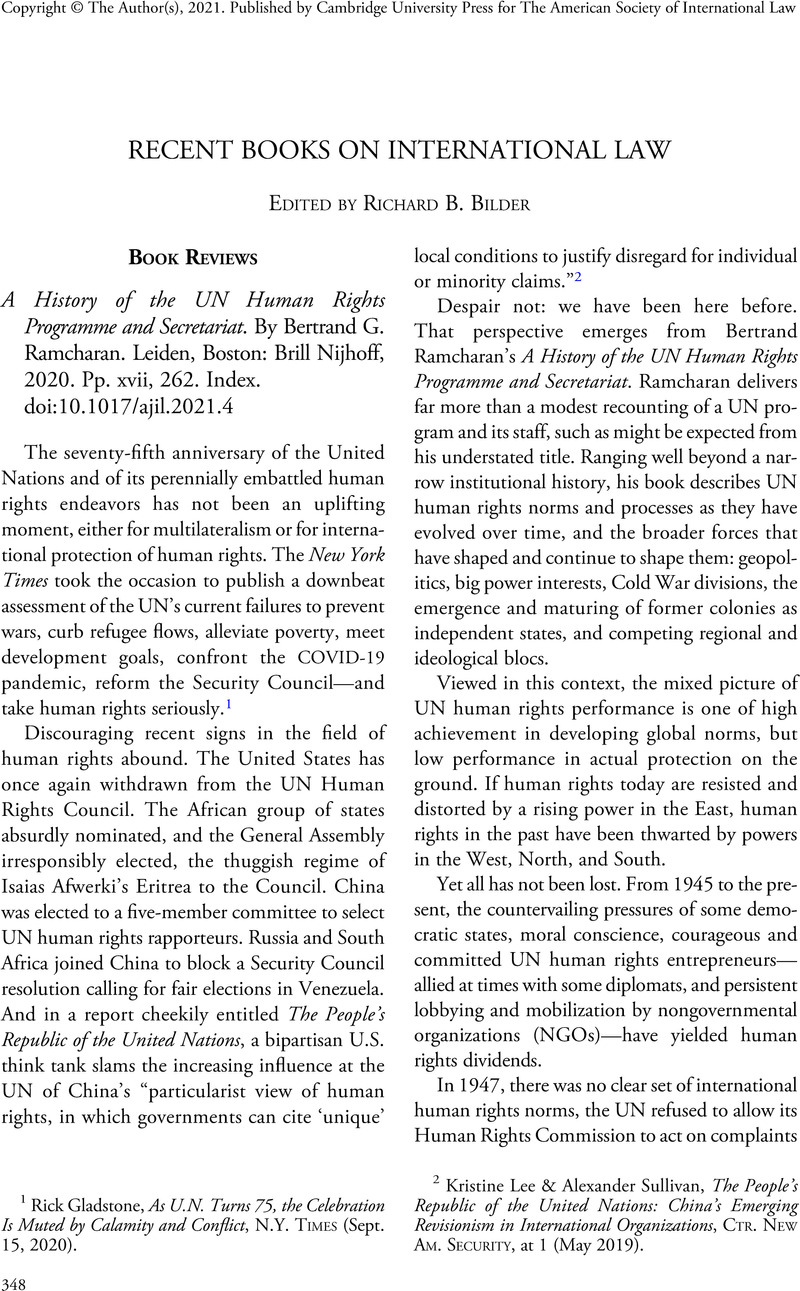No CrossRef data available.
Published online by Cambridge University Press: 19 April 2021

1 Rick Gladstone, As U.N. Turns 75, the Celebration Is Muted by Calamity and Conflict, N.Y. Times (Sept. 15, 2020).
2 Kristine Lee & Alexander Sullivan, The People's Republic of the United Nations: China's Emerging Revisionism in International Organizations, Ctr. New Am. Security, at 1 (May 2019).
3 By comparison, Africa also has a formally similar regional human rights system, with a Commission and a Court, but African governments pay it little heed. Amnesty International, Africa: States Frustrate Continental Rights Bodies’ Efforts to Uphold Human Rights (Oct. 21, 2019).
4 See UN, Growth in the United Nations Membership, 1945–Present, at https://www.un.org/en/sections/member-states/growth-united-nations-membership-1945-present/index.html.
5 Id.
6 GA Res. 60/251, para. 7 (Mar. 15, 2006).
7 Id.
8 See generally, e.g., Human Rights Council, Report of the Special Rapporteur on Eritrea, Human Rights Situation in Eritrea, UN Doc. A/HRC/44/23 (May 11, 2020).
9 GA Res. 60/251, supra note 6, para. 8.
10 For example, one of many such works not cited in Ramcharan's brief bibliography (pp. 263–65) is: Yuval Shany, The Effectiveness of the Human Rights Committee and the Treaty Body Reform, in Der Staat im Recht. Festschrift für Eckart Klein Zum 70 (Marten Breuer, Astrid Epiney, Andreas Haratsch, Stefanie Schmahl & Norman Weiß eds., 2013) (Hebrew University of Jerusalem Research Paper No. 02-13), available at https://ssrn.com/abstract=2223298. See also Cassel, Douglass, Does International Human Rights Law Make a Difference?, 2 Chi. J. Int'l L. 121 (2001)Google Scholar.